Let’s face it: Your microwave probably needs to be cleaned.
Cleaning the microwave is a task that people tend to put off; after all, it’s easy to shut the door (literally!) on the problem and forget about it until the next time you open your microwave, at which point, well, you need to use the microwave, so cleaning it can wait.
When you do finally get around to cleaning the microwave, you’ll find that it’s a simple task — once you know the secret to doing it with very little effort on your part. To break down the steps involved in this easy kitchen chore, we spoke to cleaning experts and microwave manufacturers about how, and how often, to clean a microwave to keep it in good working order.
Cleaning a microwave is a straightforward job that does not require any specialty cleaners or tools — in fact, steam will do most of the work for you. However, Gerrod Moore, a product marketing manager at KitchenAid, cautions, “Before cleaning, ensure all controls are off, and the microwave oven is cool. Always follow label instructions on cleaning products.”
Microwave- and Dishwasher-Safe Unbreakable Cereal Bowls
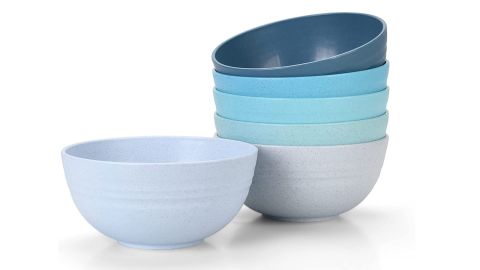
Katie Jennings, a senior R&D manager at Seventh Generation, provides the following steps for deep cleaning a microwave. “First, microwave a bowl of water for one minute to loosen any stuck-on food or debris.”
Seventh Generation Liquid Dish Soap Free & Clear
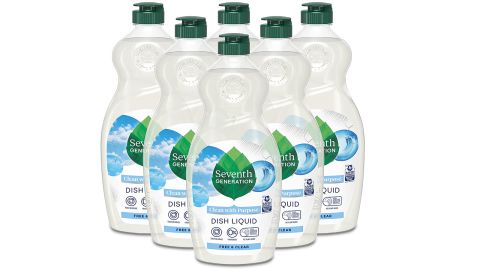
“From there,” she says, “remove the carousel tray and wash in the sink with a plant-based dish soap and dry with a hand towel.” Be mindful not to burn your hand when removing the carousel from the unit; use an oven mitt if necessary.
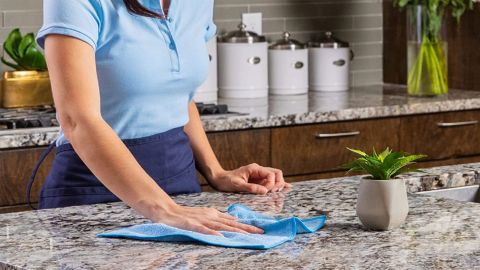
To clean the interior of the microwave, use a microfiber cloth or nonabrasive sponge to wipe all sides of the microwave. The steam created by heating a bowl of water should loosen stuck-on food such that they can simply be wiped away.
Seventh Generation All-Purpose Cleaner Free & Clear
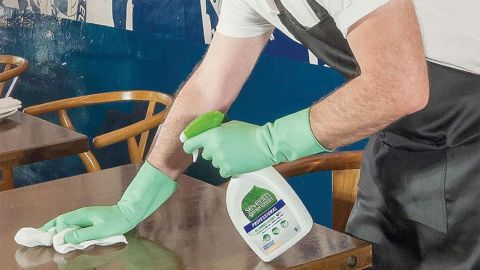
“If stubborn stains remain,” Jennings says, “use an all-purpose cleaner safe for a variety of surfaces.” However, be mindful about what type of cleaning agents you use. “Avoid using harsh cleaners,” she says, “as these can emit volatile organic compounds (VOCs) that pollute indoor air quality.”
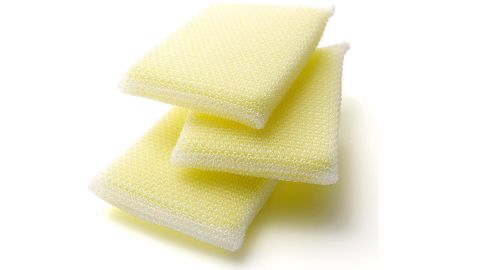
Avoid using abrasive sponges or scouring pads when cleaning a microwave; if a scrub sponge is needed for the job, opt for a non-scratch sponge like a Dobie pad.
Laura Johnson, a research and development analyst for LG Electronics, offered some tips on what to avoid when cleaning a microwave to ensure you don’t hurt yourself or damage the appliance.
- If heating water to create steam to loosen soils, heat only for as long as you would to heat a cup of coffee or tea; heating water for too long, in some cases, can cause the liquid to become superheated and erupt.
- Don’t use an abrasive scouring pad or sponge to clean the microwave, as you could scratch the metal.
- Don’t put the grease filters in the dishwasher to clean.
- Do not use ammonia-based cleaners to clean a microwave or microwave filter.
The experts we spoke to agreed that it’s best to wipe spills and splatters as they happen using a damp sponge or microfiber cloth, and to do a deeper cleaning using the steam method as needed.
“It’s best to clean your microwave in two ways,” Jennings says. “Spot clean right away for large spills, and deep clean once or twice a month.”
While steam on its own is an excellent cleaning agent, some people choose to use natural disinfecting acids like white vinegar.
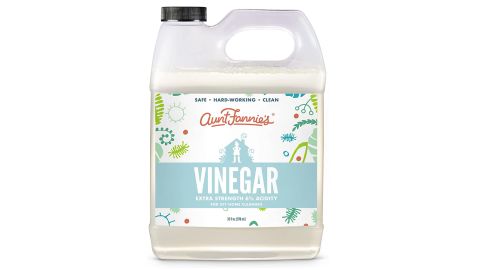
“Vinegar is an excellent cleaning agent,” Johnson says, “and can definitely be used for cleaning.” Combine 1 cup of water with 1 tablespoon of vinegar to make a vinegar solution that can be used to wipe down the outside or inside of the microwave.
Lemon can be used as an alternative to cleaning a microwave with vinegar, and is a good option for when you don’t have white vinegar on hand, for those who hate the smell of vinegar and/or for those who love the smell of lemon.
Using lemon to clean a microwave is also a good choice for the sustainably minded — it’s an easy way to get a second use out of a lemon carcass after squeezing its juice. Simply slice an already squeezed lemon and add the slices to a bowl of water.
The microwave’s filter should be cleaned regularly. “We recommend cleaning grease filters monthly,” Moore says, “or as prompted by the ‘Filter Status’ indicator.” Charcoal filters, which cannot be cleaned, should be replaced every six to 12 months.
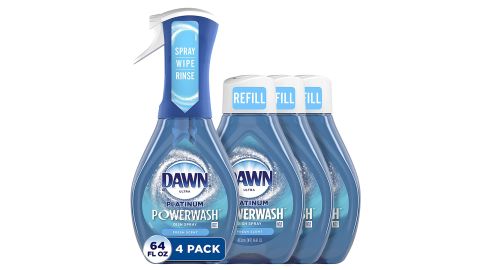
“To clean the grease filters,” Johnson says, “slide the filter out and pull down to remove. Soak the filter in hot water and a mild detergent, then rinse well and shake to dry.” Very greasy filters may require a second pass; using a dish spray will allow you to better cover the surface area of the filter with soap.
